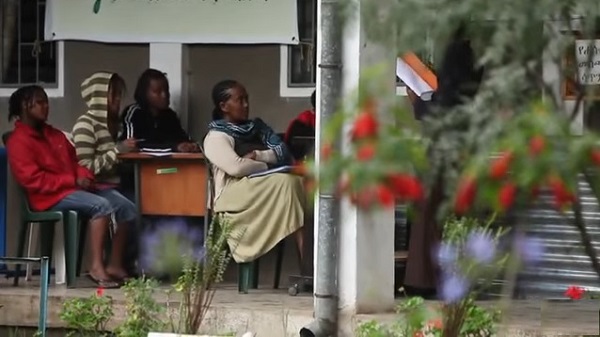
The U.S. Agency for International Development (USAID) and its implementing partner Pact with FHI 360 and ChildFund marked the successful completion of the USAID-funded Yekokeb Berhan Program for Highly Vulnerable Children and launched its new USAID Caring for Vulnerable Children activity which will be implemented by FHI 360. Since 2011, this U.S. President’s Emergency Plan for AIDS Relief (PEPFAR) funded activity has worked closely with a variety of stakeholders to ensure orphans and vulnerable children and their families have access to HIV testing and treatment and other health services while linking them with shelter and care and food and nutrition, education, legal protection, psychosocial support and economic strengthening services.
The five-year, $92 million dollar, Yekokeb Berhan Program for Highly Vulnerable Children activity was initially implemented in nine regional states, and since 2014 has operated in Amhara, Oromia, Tigray, SNNPR and Addis Ababa. More than 900,000 highly vulnerable children and their families in high HIV prevalence urban and peri-urban areas have benefited from this activity.
———————————————-
———————————————-
Specifically, Yekokeb Berhan achieved remarkable results in the areas of systems strengthening; coordination of care; establishment of referral linkages; strengthening the capacity of community committees and community care coalitions, enhancing the economic capacity of households, and documenting based decision making. The Ministry of Women and Children’s Affairs is planning to replicate the Early Childhood Development service model in all regions of Ethiopia.
The follow on activity, USAID’s Caring for Vulnerable Children, will build on the successes and achievements realized under Yekokeb Berhan and continue to improve the health and well-being outcomes of orphans and vulnerable children. Child-focused and family-centered case management will be at the heart of the new activity. The activity will continue to use community workers to reach out to children and families in their homes and connect them to a wide range of services – HIV/AIDS care, health, nutrition, economic security, education, protection and psycho-social support.
FHI 360 is partnering with Plan International, Retrak and Ethiopian Society of Sociologists, Social Workers, and Anthropologies (ESSSWA) through 22 local implementing partners with leadership from key Ministries to serve 325,000 highly vulnerable children and more than 170,000 caregivers. This $49 million dollar activity will operate in 126 woredas/towns spread across four regions – Amhara, Oromia, SNNPR, and Tigray and Addis Ababa and Dire Dawa City Administrations.
Source: U.S. Embassy Ethiopia
